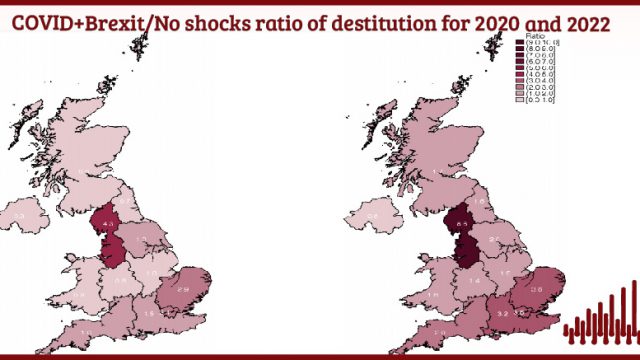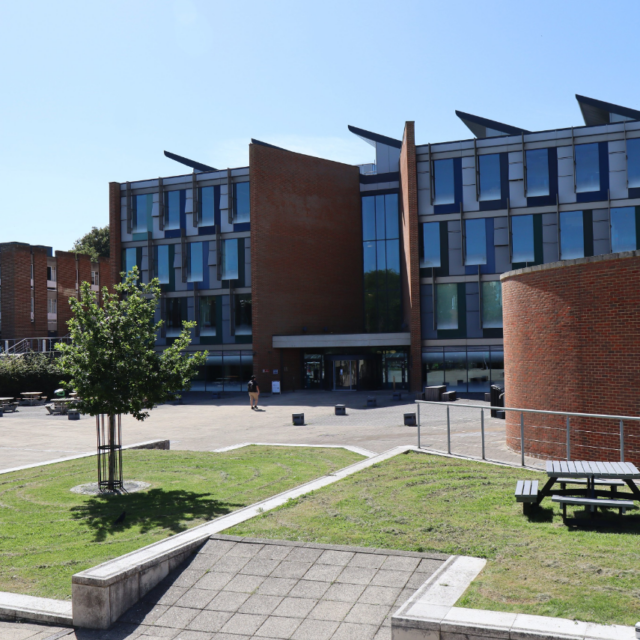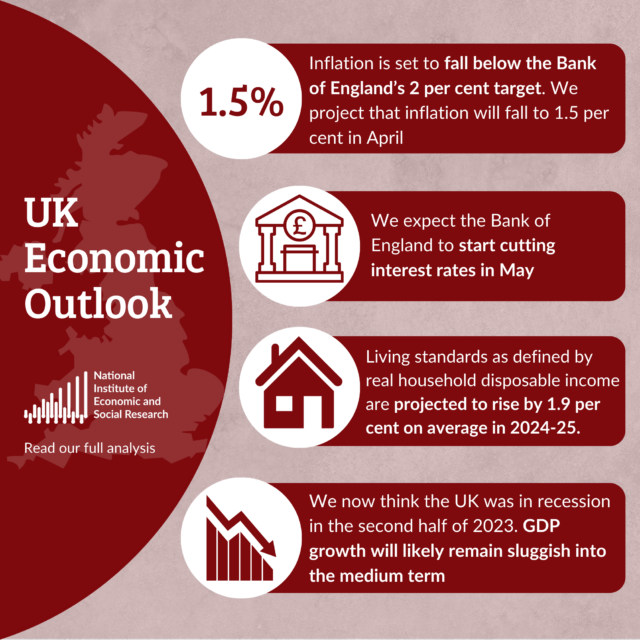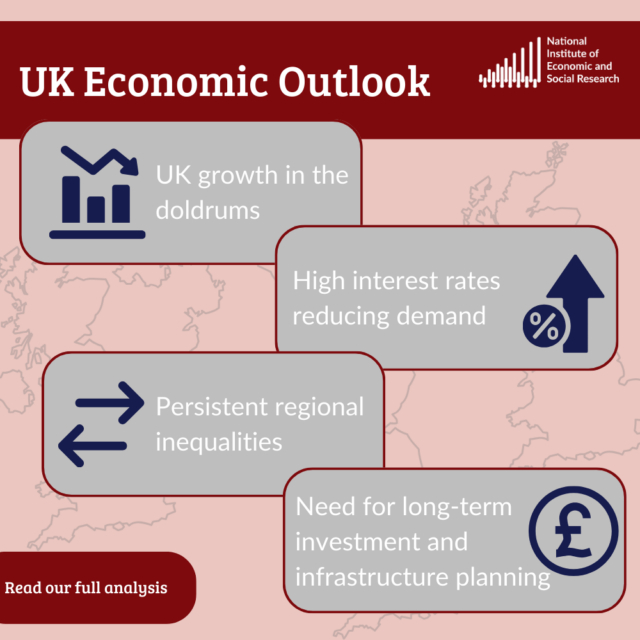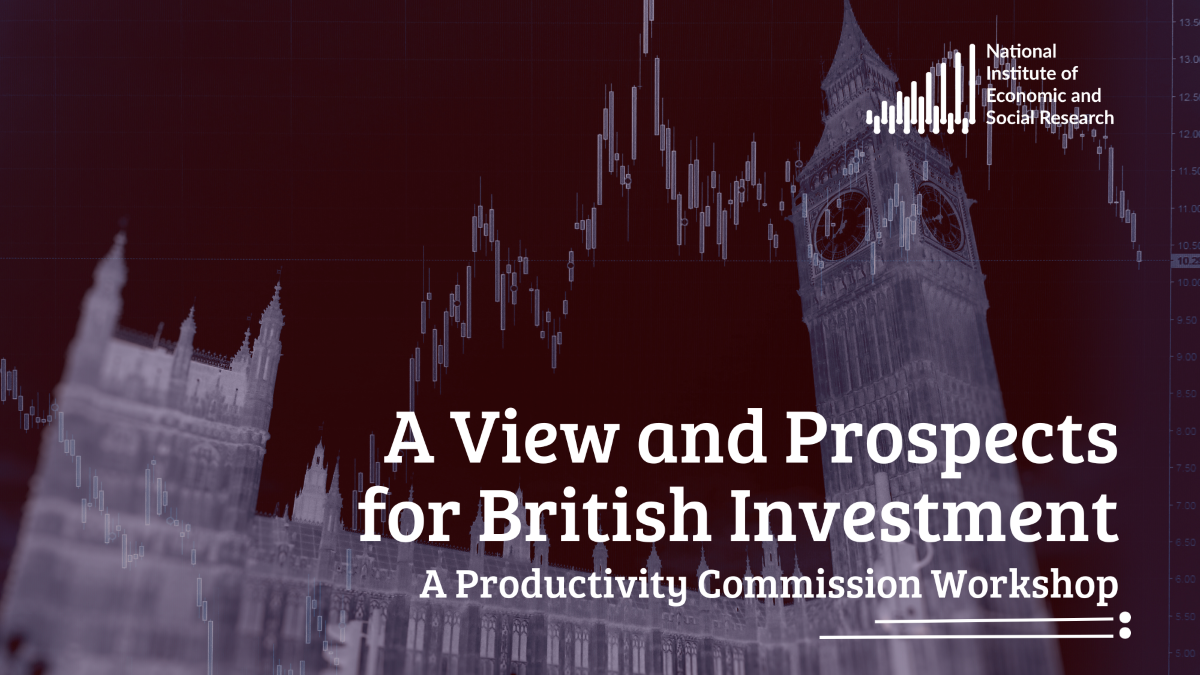The UK (and Western) productivity puzzle is a macro not a micro phenomenon
The greatest challenge facing UK economic policy, far larger than Brexit, is zero productivity growth since the start of the Great Recession in 2008. The OECD recently projected that the UK’s GDP per capita will be 3% lower by 2030 than it would have been if the UK remained in the EU. This compares with a loss of about 21% in GDP per hour that has already been incurred as a result of stagnating productivity since 2007. This lost decade is even more surprising given that before the crisis the UK’s productivity growth rate was one of the highest amongst the advanced economies. Hence this is commonly referred to as the productivity puzzle. (For more on UK productivity and the puzzle see the Special Issue of the National Institute Economic Review for August 2017)
The greatest challenge facing UK economic policy, far larger than Brexit, is zero productivity growth since the start of the Great Recession in 2008. The OECD recently projected that the UK’s GDP per capita will be 3% lower by 2030 than it would have been if the UK remained in the EU. This compares with a loss of about 21% in GDP per hour that has already been incurred as a result of stagnating productivity since 2007. This lost decade is even more surprising given that before the crisis the UK’s productivity growth rate was one of the highest amongst the advanced economies. Hence this is commonly referred to as the productivity puzzle. (For more on UK productivity and the puzzle see the Special Issue of the National Institute Economic Review for August 2017).
But it is important to recognise that there are two productivity puzzles and the same explanation does not necessarily apply to both. The first puzzle is a low level of productivity in the UK relative to in other advanced countries. This has been observed since the 1960s with respect to France and Germany and relative to the United States for most of the twentieth century. The second puzzle is zero growth since 2007.
The now orthodox explanation for the second puzzle is that continuing low productivity growth has little or nothing to do with the recession. It is instead explained by a decline in innovation (total factor productivity growth in the jargon) which predates the crisis. This decline is partly exogenous, due to the fading effects of the ICT revolution. But it also partly endogenous, due to weaknesses in the competitive process, which again predate the recession. In other words, the explanation is to be found in purely micro factors, an increasing (and mysterious) malfunction in the competitive process.
By contrast in my own recent research covering 22 Western economies since 2000 (published as Centre for Macroeconomics Discussion Paper No. 2018-09 and in Intereconomics) I argue the contrary: weak productivity performance is a macro phenomenon, mainly due to weakness in aggregate demand which in turn is due to constrained demand for each country’s exports since 2007. The growth of export demand has fallen sharply in every one of the 22 countries. The variation across these countries in labour productivity performance since 2007 is due to differences in labour market institutions: for a given degree of constraint on export demand, countries with more flexible labour markets like the UK will experience better labour market results but worse productivity performance. If aggregate demand falls but labour input continues to grow the result must be a decline in labour productivity growth, even to zero. In most countries the growth rate of hours worked fell sharply after 2007 and even turned negative. By contrast in the UK hours worked rose at much the same quite rapid rate after the crisis as they did before it (2000-2007). This growth in labour input was due almost entirely to immigration, both from the EU and from the rest of the world. By contrast in an inflexible labour market migrants or young natives are unable to price themselves into jobs, which is the case in much of Europe. So the flip side of the UK’s “jobs miracle” is the productivity disaster.
It is true that innovation (total factor productivity growth) has also declined in virtually all Western economies but I argue this too is an effect of the Great Recession: empirically total factor productivity growth, whether at the industry or the whole economy level, tends to be faster when GDP is expanding more rapidly and this can be attributed to increasing returns. This has been demonstrated much earlier at the industry level and my own research cited above shows that it holds true at the country level: the greater the slowdown in GDP growth after 2007, the greater the slowdown in TFP growth.
It follows that the underlying problem in Western economies, and particularly in Europe, is constrained demand for each country’s exports. So it is not one which any single country can solve on its own. “Ending austerity” in any one country will not do the trick since it would just lead to a balance of payments problem and increased debt. For a single country like the UK with a flexible labour market, reducing immigration will raise productivity growth. This is the potential silver lining from Brexit. Any one country could also adopt tax policies to encourage investment and so boost capital deepening (for example, 100% depreciation in the first year for all types of investment, financed if desired by a rise in the corporate tax rate). For a more general solution, one possibility is a coordinated fiscal and/or monetary expansion across the Western world, combined with incentives to raise investment. Unfortunately, at the moment such a policy proposal sounds wildly implausible.
Alternatively, we could just wait for the Western economies to recover of their own accord. If the US economy continues to expand at its current rate, there is some hope of this. If we wait long enough and China continues to grow rapidly then China (and Asia generally) will eventually drag Europe out of its current stagnation. If we can’t wait that long, the need for new, more imaginative policies to address the productivity problem, in addition to the usual “structural reforms”, will remain urgent.
Nicholas Oulton is a Fellow at the National Institute and at ESCoE, a Fellow at the ONS, and an Associate at the Centre for Macroeconomics, LSE.










